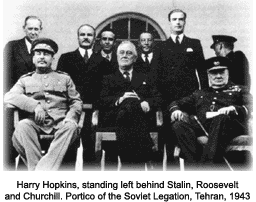 Author STEVE UBANEY joined S.T. Patrick to discuss his newest book, Who Murdered FDR? Ubaney is the author of the Who Murdered…? book series, which has also included Who Murdered Elvis? The newest edition, Who Murdered JFK? is being finalized. Ubaney addresses the scene of the crime in Warm Springs, GA, the disappearing medical records, Eleanor’s later inquest, Lucy Mercer & Missy LeHand, Polio vs Poisoning, Harry Hopkins, Joseph Stalin, the potential timeline of the murder, and much, much more.
Author STEVE UBANEY joined S.T. Patrick to discuss his newest book, Who Murdered FDR? Ubaney is the author of the Who Murdered…? book series, which has also included Who Murdered Elvis? The newest edition, Who Murdered JFK? is being finalized. Ubaney addresses the scene of the crime in Warm Springs, GA, the disappearing medical records, Eleanor’s later inquest, Lucy Mercer & Missy LeHand, Polio vs Poisoning, Harry Hopkins, Joseph Stalin, the potential timeline of the murder, and much, much more.
You can find Steve Ubaney at SteveUbaney.com. His books can be found on Amazon.com, as well as other fine booksellers.
Podcast: Play in new window | Download
I respect Steve Ubaney’s scholarship and have ordered several of Steve’s books.
Nonetheless, I am skeptical that Stalin was behind the poisoning.
FDR’s death handed the presidency to Harry Truman, who dropped the Bomb on Japan, strengthened the post-war U.S. military by officially ending racial discrimination in the U.S. armed forces, and created the CIA. Truman thereby proved to be a tough customer for the Soviets.
I’m also skeptical that Stalin’s behavior reflected a desire for world power. Neither Stalin’s land grabs in central Europe nor his aid to North Korea during the Korean war amounted to an attempt to gain control of the world.
I do believe Stalin distrusted Western powers because of the trauma Hitler had inflicted on Russia and because Western capitalists so loathed communism and had to a significant degree backed Hitler.
Given the domestic animus toward FDR, I suspect FDR was done in by Americans.
I believe FDR was not a great WWII president.
True, he delegated military decisions to military leaders, which was good.
On the other hand, there are reasons to believe FDR knew Pearl Harbor was going to be attacked on or about December 7. By not warning the army and navy commanders in Hawaii, and allowing 3,000+ soldiers and sailors to be murdered, FDR committed treason, I believe.
Apologists maintain FDR believed the U.S. needed to enter the war and that his decision to let the Pearl Harbor attack occur was therefore justified. To this, I say nonsense. The attack could have been blunted, and FDR could have sold deeper U.S. involvement in the war to the American people. But I’m content to leave the argument here to historians.
What is inexcusable on any grounds is FDR’s unwillingness to bomb the tracks on which trains traveled carrying Jews to extermination camps. Yes, FDR had allocated civilian control over U.S. military action in Europe to John McCloy, who refused to have the tracks bombed…the same John McCloy who betrayed his country as Warren Commission commissioner. But FDR was nonetheless Commander in Chief of all U.S. armed forces.
Domestically, FDR was a mixed bag. His court-packing scheme was a very bad idea. By allowing the Fed to raise interest rates in 1937, which killed a growing rebound of the U.S. economy, FDR did the American people no favors. Perhaps worst of all on the domestic front was FDR’s move to transform the political and legal structure of the U.S. by allocating immense rule-making power to administrative agencies — agencies
in the 1930s such as the Securities and Exchange Commission, agencies today such as the FDA and the CDC. Agencies always are captured by the industries they regulate; and the immense rule-making power of agencies is the epitome of un-democratic law-making. (Yes, I grasp the argument that agencies can make use of experts that could never be elected to congress; but I also grasp that unelected experts who are given immense un-checked power can and do misbehave.)
On the other hand, FDR’s support for a federal gift tax was wise. His support for Social Security was wise, even though congress over the years has unwisely tampered with the tax aspects of S.S. benefits.